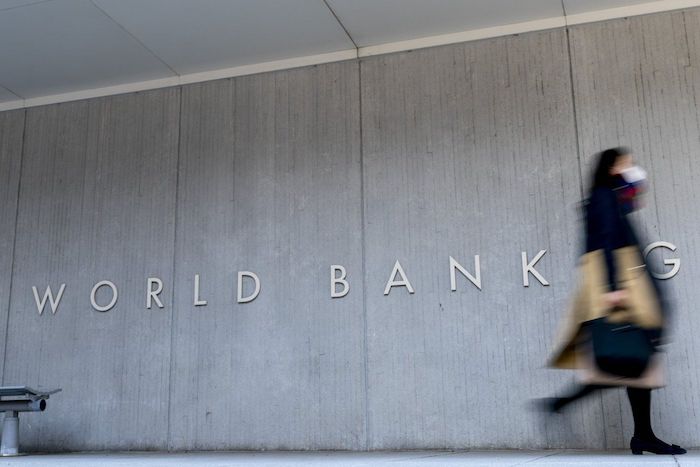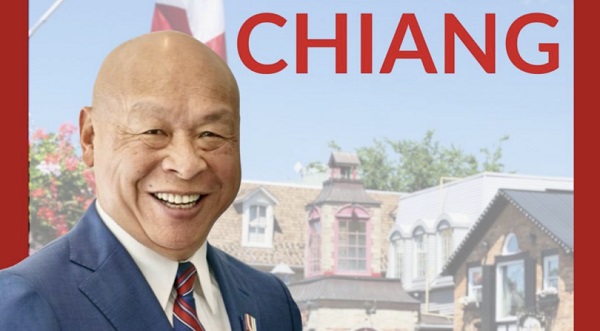Business
World Bank offers dim outlook for the global economy in face of higher interest rates

That’s the latest outlook of the World Bank, a 189-country anti-poverty agency, which estimates that the international economy will expand just 2.1% in 2023 after growing 3.1% in 2022. Still, the bank’s latest Global Economic Prospects report, which it issued Tuesday, marks an upgrade from its previous forecast in January. That estimate had envisioned worldwide growth of just 1.7% this year.
The Federal Reserve and other major central banks have been aggressively raising interest rates to combat a resurgence of inflation, set off by a stronger-than-expected rebound from the pandemic recession, persistent supply shortages and energy and food price shocks caused by the Ukraine war.
But the global economy has proved surprisingly resilient in the face of higher borrowing costs, and the World Bank predicts that growth will accelerate to 2.4% in 2024.
The United States has continued to generate unexpectedly robust job gains — employers added 339,000 workers in May, far more than economists had forecast — even though the Fed has raised its benchmark rate 10 times in the past 15 months. In its report Tuesday, the World Bank upgraded its forecast for U.S. economic growth this year to 1.1%. Though weak, that is more than double the growth the World Bank had envisioned in January.
The eurozone, which represents the 20 countries that share the euro currency, is expected to post collective growth of 0.4% this year. That, too, marks a slight upgrade: In January, the World Bank had expected no growth at all for the eurozone this year. Europe, struggling with higher energy prices caused by the Ukraine war, enjoyed relief from a surprisingly warm winter, which reduced demand for heat.
The World Bank upgraded its 2023 outlook for China after Beijing late last year relaxed its draconian zero-COVID policies, which had restricted travel and hammered its economy. The world’s second-biggest economy is now expected to grow 5.6% in 2023, up from 3% last year. The World Bank envisions Japan’s growth decelerating to 0.8% this year from 1% in 2022. It foresees India’s growth slowing to a still-strong 6.3% from 7.2% last year.
The bank predicts that global trade will slow markedly this year. It foresees a sharp drop in the price of energy and other commodities this year and next.
Automotive
Auto giant shuts down foreign plants as Trump moves to protect U.S. industry

 MxM News
MxM News
Quick Hit:
Stellantis is pausing vehicle production at two North American facilities—one in Canada and another in Mexico—following President Donald Trump’s announcement of 25% tariffs on foreign-made cars. The move marks one of the first corporate responses to the administration’s push to bring back American manufacturing.
Key Details:
-
In an email to workers Thursday, Stellantis North America chief Antonio Filosa directly tied the production pause to the new tariffs, writing that the company is “continuing to assess the medium- and long-term effects” but is “temporarily pausing production” at select assembly plants outside the U.S.
-
Production at the Windsor Assembly Plant in Ontario will be paused for two weeks, while the Toluca Assembly Plant in Mexico will be offline for the entire month of April.
-
These plants produce the Chrysler Pacifica minivan, the new Dodge Charger Daytona EV, the Jeep Compass SUV, and the Jeep Wagoneer S EV.
Diving Deeper:
On Wednesday afternoon in the White House Rose Garden, President Trump announced sweeping new tariffs aimed at revitalizing America’s auto manufacturing industry. The 25% tariffs on all imported cars are part of a broader “reciprocal tariffs” strategy, which Trump described as ending decades of globalist trade policies that hollowed out U.S. industry.
Just a day later, Stellantis became the first major automaker to act on the new policy, halting production at two of its international plants. According to an internal email obtained by CNBC, Stellantis North American COO Antonio Filosa said the company is “taking immediate actions” to respond to the tariff policy while continuing to evaluate the broader impact.
“These actions will impact some employees at several of our U.S. powertrain and stamping facilities that support those operations,” Filosa wrote.
The Windsor, Ontario plant, which builds the Chrysler Pacifica and the newly introduced Dodge Charger Daytona EV, will shut down for two weeks. The Toluca facility in Mexico, responsible for the Jeep Compass and Jeep Wagoneer S EV, will suspend operations for the entire month of April.
The move comes as Stellantis continues to face scrutiny for its reliance on low-wage labor in foreign markets. As reported by Breitbart News, the company has spent years shifting production and engineering jobs to countries like Brazil, India, Morocco, and Mexico—often at the expense of American workers. Last year alone, Stellantis cut around 400 U.S.-based engineering positions while ramping up operations overseas.
Meanwhile, General Motors appears to be responding differently. According to Reuters, GM told employees in a webcast Thursday that it will increase production of light-duty trucks at its Fort Wayne, Indiana plant—where it builds the Chevrolet Silverado and GMC Sierra. These models are also assembled in Mexico and Canada, but GM’s decision suggests a shift in production to the U.S. could be underway in light of the tariffs.
As Trump’s trade reset takes effect, more automakers are expected to recalibrate their production strategies—potentially signaling a long-awaited shift away from offshoring and toward rebuilding American industry.
Business
‘Time To Make The Patient Better’: JD Vance Says ‘Big Transition’ Coming To American Economic Policy

JD Vance on “Rob Schmitt Tonight” discussing tariff results

From the Daily Caller News Foundation
By Hailey Gomez
Vice President JD Vance said Thursday on Newsmax that he believes Americans will “reap the benefits” of the economy as the Trump administration makes a “big transition” on tariffs.
The Dow Jones Industrial Average dropped 1,679.39 points on Thursday, just a day after President Donald Trump announced reciprocal tariffs against nations charging imports from the U.S. On “Rob Schmitt Tonight,” Schmitt asked Vance about the stock market hit, asking how the White House felt about the “Liberation Day” move.
“We’re feeling good. Look, I frankly thought in some ways it could be worse in the markets, because this is a big transition. You saw what the President said earlier today. It’s like a patient who was very sick,” Vance said. “We did the operation, and now it’s time to make the patient better. That’s exactly what we’re doing. We have to remember that for 40 years, we’ve been doing this for 40 years.”
“American economic policy has rewarded people who ship jobs overseas. It’s taxed our workers. It’s made our supply chains more brittle, and it’s made our country less prosperous, less free and less secure,” Vance added.
Vance recalled that one of his children had been sick and needed antibiotics that were not made in the United States. The Vice President called it a “ridiculous thing” that some medicines invented in the country are no longer manufactured domestically.
“That’s fundamentally what this is about. The national security of manufacturing and making the things that we need, from steel to pharmaceuticals, antibiotics, and so forth, but also the good jobs that come along when you have economic policies that reward investing in America, rather than investing in foreign countries,” Vance said.
WATCH:
With a baseline 10% tariff placed on an estimated 60 countries, higher tariffs were applied to nations like China and Israel. For example, China, which has a 67% tariff on U.S. goods, will now face a 34% tariff from the U.S., while Israel, which has a 33% tariff, will face a 17% U.S. tariff.
“One bad day in the stock market, compared to what President Trump said earlier today, and I think he’s right about this. We’re going to have a booming stock market for a long time because we’re reinvesting in the United States of America. More importantly than that, of course, the people in Wall Street have done well,” Vance said.
“We want them to do well. But we care the most about American workers and about American small businesses, and they’re the ones who are really going to benefit from these policies,” Vance said.
The number of factories in the U.S., Vance said, has declined, adding that “millions of workers” have lost their jobs.
“My town [Middletown, Ohio], where you had 10,000 great American steel workers, and my town was one of the lucky ones, now probably has 1,500 steel workers in that factory because you had economic policies that rewarded shipping our jobs to China instead of investing in American workers,” Vance said. “President Trump ran on changing it. He promised he would change it, and now he has. I think Americans are going to reap the benefits.”
-

 2025 Federal Election2 days ago
2025 Federal Election2 days agoWEF video shows Mark Carney pushing financial ‘revolution’ based on ‘net zero’ goals
-

 2025 Federal Election2 days ago
2025 Federal Election2 days agoLiberal MP resigns after promoting Chinese government bounty on Conservative rival
-

 2025 Federal Election2 days ago
2025 Federal Election2 days ago‘I’m Cautiously Optimistic’: Doug Ford Strongly Recommends Canada ‘Not To Retaliate’ Against Trump’s Tariffs
-

 Business2 days ago
Business2 days agoCanada may escape the worst as Trump declares America’s economic independence with Liberation Day tariffs
-

 Business2 days ago
Business2 days agoCalifornia planning to double film tax credits amid industry decline
-

 Courageous Discourse1 day ago
Courageous Discourse1 day agoEurope Had 127,350 Cases of Measles in 2024
-

 2025 Federal Election1 day ago
2025 Federal Election1 day agoHighly touted policies the Liberal government didn’t actually implement
-

 Business2 days ago
Business2 days agoTrump says wave of reciprocal tariffs will go into effect at midnight








